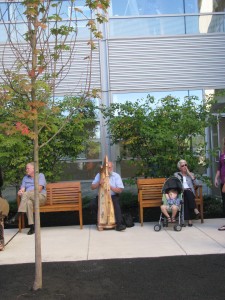After the loss of a child or other loved one, it can be tough to know what to do. People want to be helpful, but often don’t know how to best do this.
“This is a delicate time and certainly one that is individual and not always
expressed with the atypical assumptions of grief,” says Lisa Bahar, Licensed Marriage and Family Therapist/Licensed Professional Clinical Counselor in Dana Point, CA. “It is helpful to come from a perspective of not necessarily knowing how another is feeling.”
She notes that relating to someone experiencing grief can be a vulnerable place because there is many times lack of acceptance of what has happened. This is sometime expressed as a denial of a child being gone–the parent might not believe or their mind cannot accept the child is gone. Therefore they might respond in what may not seem as an accepting (and instead perhaps defensive or disconnected) manner.
“As a clinician, I will certainly provide added support as an option, but will not force, since it is an individual experience of grieving and processing what has happened,” Bahar explains.
Support Group Considerations:
- Validation. Support groups provide a level of validation and understanding from individuals who are experiencing similar situations, and who are dealing with it in their own way.
- Sharing Feelings. Many times people experience a sense of failure (why them and not me? Why would God to this to me or the child? Take me instead, etc.) “These are very important times to feel, process and be with what is happening,” she says, noting the groups can help,” she says.
- Don’t push if the parent is resistant to going to a group or sharing feelings. “Resistance is their process and where they are at. Forcing or insisting is only going to make situation worse.”
- Timing. People come when they are ready. “Many times the process of feeling will come random without warning,” Bahar adds. Eventually human emotions can catch up to us if we are not dealing with them. Sometimes a person arrives for sessions when they are ready, perhaps they know this intuitively, she says.
- Individual Needs. The timeline for support/therapy is individual. This is up to the person, unless the facilitator of the group has a certain preferred
recommendation out of respect to the other group members.









